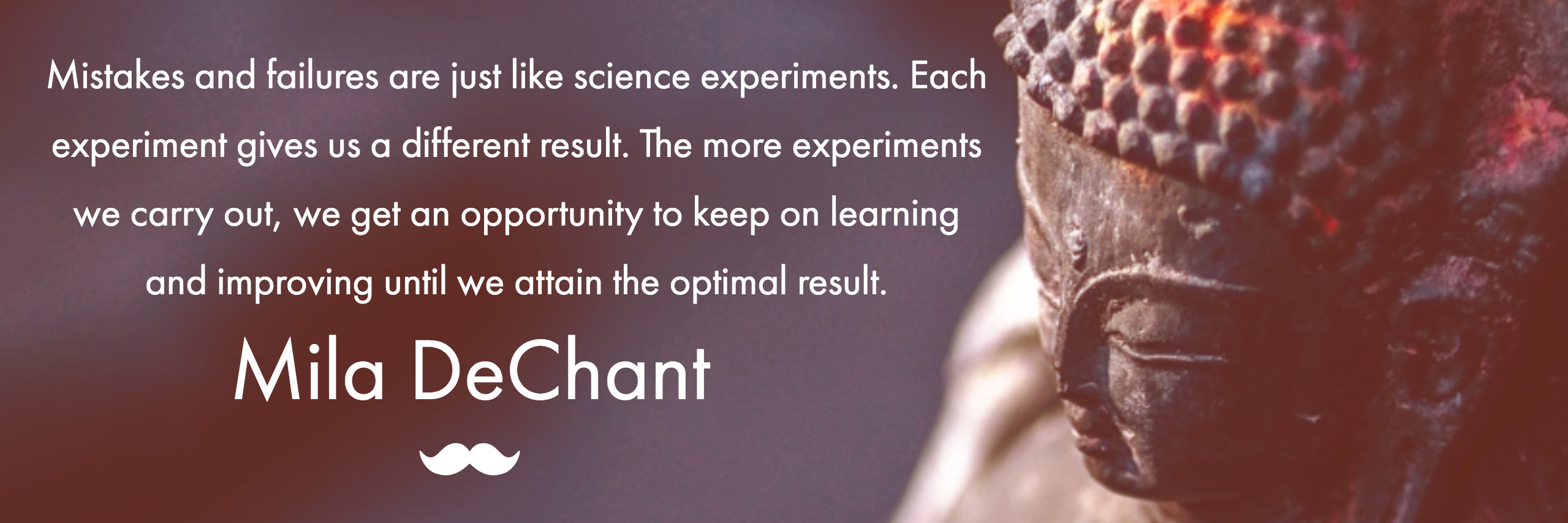The narrative of the terms “failure” and “mistake” have been looked at as terms defining the potential of someone. In the work place the constant recording of the number of times an employee has made a mistake or has failed on multiple tasks results in punishing them by defaming their character and aptitude via a so called performance review fit for a machine. In schools, failing an exam or making mistakes is often looked as a student being “slow” or their peers brain shaming them. In social settings, we are constantly creating this false identity and definition of what a successful individual must look like. Further more social media and online content is inundated with messages that triggers anxiety. Messages such as ” What separates failures from winners”, or ” No excuses for mistakes” etc.
Words have power. Give words such as “failure” and “mistakes” a positive narrative to improve the mental health of our community.
Mila DeChant
Why is there a need to highlight what failures are and the need to put a face to what failures look like? Why do we have a devolved state of perception on what growth is? If engineers, architects, scientists, and chefs approach everything they build, make, or create as attempts, why can’t we look at failures from the same perspective as them?
Scientists often carry out a series of tests before they achieve the optimal result they are looking for. They look at every outcome of each test as a learning opportunity. They do not look at it as failures or mistakes. The same goes for bakers and chefs. Every dish they cook or bake is approached as an attempt . They learn from every attempt and improve the next attempt. That is exactly how we must start looking at mistakes and failures – as experiments. Science experiments that we are constantly carrying out to learn and improve until we get an optimal outcome. It is imperative to shift how we perceive the narrative of the words “failures” and “mistakes”. Change the narrative to a positive one.


